Pip Magazine provides simple, positive, practical solutions to living a more sustainable life. With articles on growing your own food, natural building,wholefoods, keeping bees, backyard chooks, fermenting, design, natural parenting and much more. Pip has profiles on people, projects, gardens, farms, houses and businesses. There are ‘how to’ guides, recipes, reviews, a directory and a kid’s section.
CONTRIBUTORS
Pip Permaculture Magazine
EDITORIAL
PERMACULTURE AROUND THE WORLD
PIP PICKS: THINGS WE LIKE
NOTICEBOARD • To place your event here, email editorial@pipmagazine.com.au
BRAINS TRUST: Waste-Free Living
LETTERS TO THE EDITOR
COFFEE
DOG • Dogs are a very popular pet, being the most common pet in Australia. They can provide various services in a permaculture system, however they need good training, space to run and a sustainable source of food, so serious planning is required before deciding to add a dog to your system.
PURSLANE • Purslane (Portulaca oleracea) can be seen as an annoying weed, but for those in the know, it is an abundant source of valuable vitamins and nutrients and is a tasty food source. Also known as pigweed (not to be confused with pigface, Carpobrotus rossii), it is a vigorous annual plant that grows like a ground cover and can be eaten raw or cooked. Highly revered in Mediterranean and Eastern cuisines, it is almost unknown to the Australian palate.
ROCKET
IN THE GARDEN: JULY - OCTOBER • Seasonal garden guides for all climates.
GROWING NUTRIENT DENSE FOOD • Vegetables, fruits and grains are a major source of vital nutrients, but generations of intensive agriculture have depleted our soils to historical lows. As a result, the broccoli you eat today may have less than half the vitamins and minerals it would have had less than a century ago. We can grow our own vegetables using lots of compost and avoiding chemicals, but how do we really know our soil has enough of the appropriate minerals in the right balance to grow truly nutrient dense food?
GETTING YOUR SOIL TESTED
GROWING POTATOES • The humble potato is a staple in the diets of most Australians. It makes sense then to grow them at home. The benefits of a freshly dug spud go beyond the incredible flavour; when you grow your own potatoes, you know exactly what type of soil they came from and what they have been exposed to. By avoiding the use of pesticides and herbicides you can eat your potatoes, skin and all, knowing that you are getting maximum nutrition without ingesting any nasty chemicals.
REDUCING WATER WASTE • There is so much focus on reducing waste at the moment, but what is often forgotten is the waste of our most precious resource of all: water.
WASTE NOT: REDUCING WASTE IN THE KITCHEN • It feels difficult to reduce your waste when you go to the shops and everything seems to be individually wrapped in plastic. Recycling was once an important part of the waste hierarchy, helping keep resources from landfill, but Australia is experiencing a recycling crisis as countries that once took our recycling waste are now refusing it. With China enforcing tight restrictions around the types of recyclable waste they will accept, and India and Indonesia following in their footsteps, a lot of our recycling is being sent to landfill despite our best efforts.
GROW YOUR OWN HERBAL TEAS • There are so many great reasons to grow your own herbal teas. Having a range of herbs on your doorstep, each with varying flavours and health benefits, is the main one. You will also have fresh organic tea available whenever you feel like having a cuppa. By growing your herbs organically, you are avoiding hidden pesticides and herbicides, as well as saving yourself money. And finally you are reducing waste and reducing the environmental footprint involved...

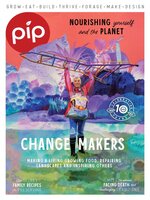 Issue 31
Issue 31
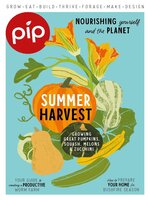 Issue 30
Issue 30
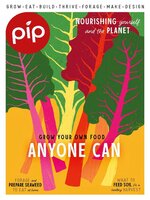 Issue 29
Issue 29
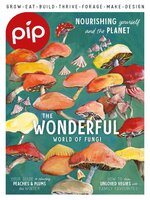 Issue 28
Issue 28
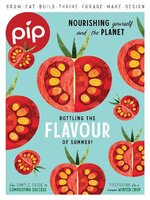 Issue 27
Issue 27
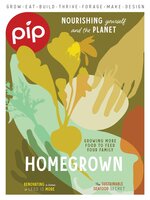 Issue 26
Issue 26
 Issue 25
Issue 25
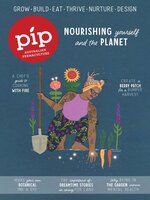 Issue 24
Issue 24
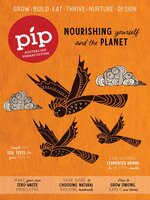 Issue 23
Issue 23
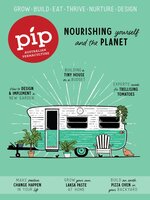 Issue 22
Issue 22
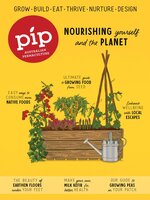 Issue 21
Issue 21
 Issue 20
Issue 20
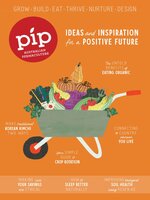 Issue 19
Issue 19
